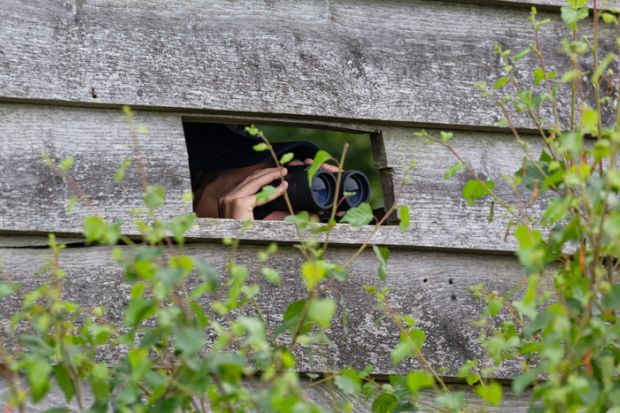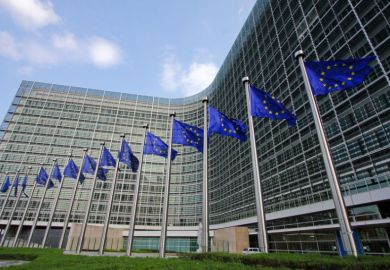Sector leaders have called on the European Union to abandon a planned initiative aimed at combating “foreign interference in [the EU’s] democratic systems”, fearing that universities could be unduly charged with “representing foreign interests”.
In an open letter, the European University Association (EUA) and the non-governmental organisation Civil Society Europe ask EU member states and the European Parliament to block elements of the European Commission’s Defence of Democracy package, announced in December.
The package includes a legislative proposal aimed at “ensuring transparency of foreign interest representations”, and would compel entities “carrying out interest representation activities for a third country” to be added to a “transparency register”.
Aspects of the register, including “annual amounts received, the third countries concerned and the main goals of the activities” would be made publicly available, while entities listed in the register would be required to keep records of their “interest representation” activities.
“The aim of this package is to tackle the threat of foreign interference with more transparency, while at the same time encouraging civic engagement and citizens’ participation in our democracies,” the commission said in a press release.
Calling the proposal “inefficient and potentially counterproductive”, the EUA and Civil Society Europe say universities and research institutes, alongside NGOs, would be “suspected of representing foreign interests” because they receive international funding, and thus would be placed on the transparency register.
The register could stigmatise the institutions listed, the open letter states, and could be weaponised to restrict “free and open debate”. Distinguishing between foreign funding and funding from EU member states would be “unnecessary and discriminatory”, the letter continues, and could impact “the freedom of the arts and science”.
“The unintended consequences of this proposal could harm the exact actors who play a key role in upholding the rule of law and contributing to vibrant and healthy democracies, as well as curbing disinformation,” the EUA and Civil Society Europe say.
“Specifically for universities, the issue of foreign interference and research security is a longstanding subject of constructive discussion between stakeholders, member states and the European Commission.
“Policies stemming from this field could inspire measures that further protect European democracy, particularly those which focus on identifying and managing risks, self-governance and dialogue as truly democratic and efficient elements.”
Register to continue
Why register?
- Registration is free and only takes a moment
- Once registered, you can read 3 articles a month
- Sign up for our newsletter
Subscribe
Or subscribe for unlimited access to:
- Unlimited access to news, views, insights & reviews
- Digital editions
- Digital access to THE’s university and college rankings analysis
Already registered or a current subscriber?








